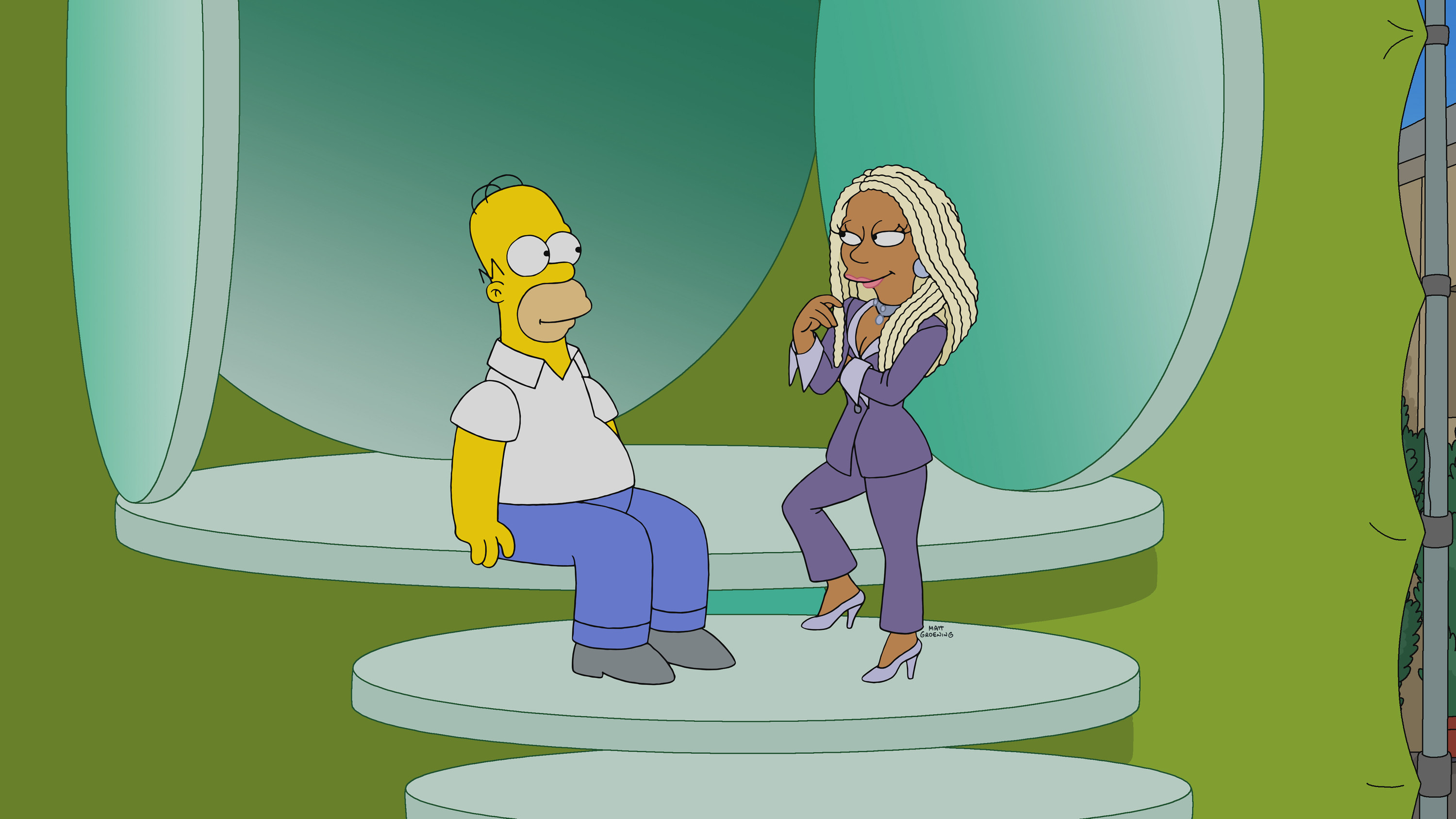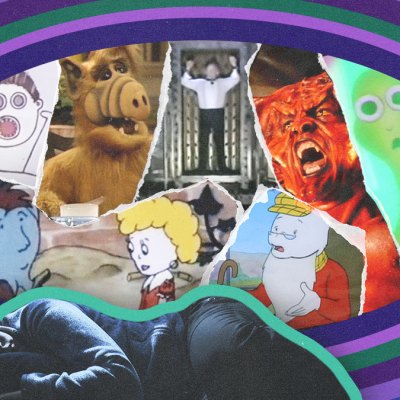This The Simpsons review contains spoilers.
The Simpsons Season 34 Episode 18
The Simpsons tries to prove music can be more than just revenge, but then it gets a little cringey, and turns superfans into stalker fans. “Fan-ily Feud” appears to take on the army of a certain former country singer gone pop goddess, whose name would probably be better left unsaid, but that would only spur the ire of BTS stans, justifiably requesting rebuttal. The episode would have benefited from a guest appearance from Taylor Swift, but if it hadn’t gone right, her next seven albums might have targeted the series as a bad breakup, a win-win situation, to be sure, for everyone involved.
The Simpsons have been making entreaties to Swift since Bart wrote “Thank you for 28 great years… Taylor Swift” on the chalkboard in “Dogtown,” season 28’s season finale. Lisa must have kept her as her number 2 Google alert. In the top slot, for the episode, she only takes email blasts from Ashlee Starling, whose fans are known as Murmur Nation, and who Homer offhandedly insults because he has been deprived of a couple dozen hot dogs. It is a sad situation, not unlike tearing a Gummi de Milo from the pants of a babysitter. It puts Homer in the glare of public scrutiny.
“Do you have any idea what you have just mobilized,” Bart incredulously asks his father in the aftermath of an encroaching avalanche of glitter. “You have insulted Ashlee Starling on camera. I’m looking into the eyes of a dead man.” The set up is perfect, it comes after Homer and Bart have both been disappointed, missing the record of “most batters knocked unconscious” being shattered by the Isotopes star pitcher, after the stadium jumbotron’s mechanical mind came under the control of the Murmur Nation, and the aforementioned hot dogs, which the Ashlee Starling fans had also eaten. Both sides are victims. But one is more vindictive, inventive, and popular.
The most effective commentary made during the episode concerns the bullying of celebrity fanatics. The buildup grows consistently strong through the first two acts, as the pop taste war encroaches on the lives of the Simpsons, and how invasive it is. The episode shines as a spoof of stan culture. The inside references are transparently specific, and the visual gags were vaguely hilarious. The entire nuclear plant is on red alert, and Lenny and Carl are forced to wear Ashlee Starling t-shirts, and any sea-cake can bring on the emptying of a candy machine. But it’s Bart whose reaction is the most telling. He becomes a robotized drone, mouthing catchphrases and statements of empowerment in the least empowered way at the very bad mention of the celebrity’s name. He is a machine, pretending to fight the programming.
Read more
Lisa has idolized celebrities before, and was a huge Malibu Stacy aficionado, so it is easy to see her falling into the rabbit hole of pop idolatry. Though still a bit out of character, she ultimately sees the groupthink as mind-numbing, but this is after she bulldozes Homer, and tosses Bart under the tiny wheels of his own skateboard. He is living out a life-long dream. She is following the crowd. Bart’s motivations are pure, evil of course, but in the Simpson tradition. Lisa’s betrayals are unlike her. Usually when the two Simpson siblings team up for something, they see it through to a successful conclusion. Even if sometimes the credit is taken by any of their many nemeses.
Marge is perfectly within character. She is an enabler, and loves the immediate bonding of new friendships. Not to mention vanity brand sparkling whiskey. The idea that Lisa gets jealous is a fun touch, which could have been mined for deeper cuts in the family ties.
Billy Eichner returns in a guest voice, but there should be more Springfield Elementary classmates in the Murmur group. It would have both personalized the fandom, and given secondary characters a chance to warp expectations. Bart does Nelson’s “Haw-Haw,” in a tribute, but we should have been given more regulars.
Songwriter Jade Novah is slyly and giddily convincing as an alternative pop diva, voicing Echo, whose followers are called Echodisiacs. Her fragrance is called Reverb, and her name carries an ingenious effect, legal changed, and quite unexpected. Homer and Echo make a lot of humorous noise before they wind up making good music together. Their relationship is fairly well fleshed out within the episode’s length, but she could have been given a shadier side. The enemy-of-my-enemy bit could end all meme wars.
The musical numbers are classics of style and parody lyrics. They work on several levels at a time, poking fun at the players, and playing along with the gag. The accompanying visuals in the music video is almost sad, how it turns The Simpsons canon into a revenge song. If not for lines like “standing for number one and sitting for number two,” the tune might even prove Homer’s initial appraisal as a whiny pop song. His retort, in the second music video, may be as cringy as the Ashlee Starling fans take it, but the montage of Simpsons archival footage brings it home, possibly a little too comfortably.
The final gag, comparing mass adulation to Sunday mass at any church, combines with the final two songs to raise this episode into higher ground. The Simpsons knows how to say a lot with a little, and when to let the jokes linger. Sometimes they get these backwards, spending episodes on a one-liner while burying a major theme in a sight gag. “Fan-Ily Feud” finds the right rhythms, and slays on the rests.


